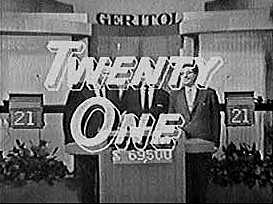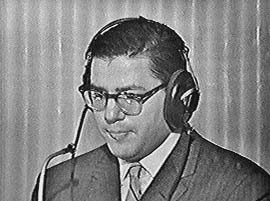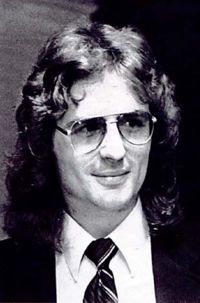Didn’t you say you wanted to know my personal history? No?
Ah. Bummer.
Well, here it is anyway.
 I was hatched at the brand new Zion-Benton Memorial Hospital in Zion, Illinois, on 25 August, 1959. This is the only picture I could find of the place on the whole big wide huge internet. It’s from a picture post-card, saying, “Welcome to Zion!” [Why a hospital would be on a picture post-card is beyond me. Come to Zion! Stay in the hospital!] Anyway…the facility was built in 1958, sold in 1975, and totally remodeled into one of the Cancer Treatment Centers of America. Cool.
I was hatched at the brand new Zion-Benton Memorial Hospital in Zion, Illinois, on 25 August, 1959. This is the only picture I could find of the place on the whole big wide huge internet. It’s from a picture post-card, saying, “Welcome to Zion!” [Why a hospital would be on a picture post-card is beyond me. Come to Zion! Stay in the hospital!] Anyway…the facility was built in 1958, sold in 1975, and totally remodeled into one of the Cancer Treatment Centers of America. Cool.
 Zion sits at the halfway point between Milwaukee and Chicago, on the Lake Michigan shore, about 45 miles from each city. Just north of Zion, right on the Wisconsin border (although not pictured on this map) is Winthrop Harbor, where both sets of my grandparents lived.
Zion sits at the halfway point between Milwaukee and Chicago, on the Lake Michigan shore, about 45 miles from each city. Just north of Zion, right on the Wisconsin border (although not pictured on this map) is Winthrop Harbor, where both sets of my grandparents lived.
The city of Zion (pop. 22,000, give or take) was founded in 1901 by religious wackjob John Dowie. I mean, the guy was a nut. Really. Many of the streets still have their original biblical names. My Grandma Johnson once lived on Hebron Avenue, and my Grandma Fielder on Gallilee (they both later moved to the Harbor).
 Zion is famous for hosting the nation’s first 1,000-megawatt nuclear power plant. Two reactors were built; the place powered all of Chicago and a good part of northern Illinois. One day, a technician accidentally shut down one of the 2 reactors, and started it back up without performing the required safety procedures. Big hoo-ha ensued, and angry words were spoken. Eventually, the whole place was shut down due to the age of the reactors.
Zion is famous for hosting the nation’s first 1,000-megawatt nuclear power plant. Two reactors were built; the place powered all of Chicago and a good part of northern Illinois. One day, a technician accidentally shut down one of the 2 reactors, and started it back up without performing the required safety procedures. Big hoo-ha ensued, and angry words were spoken. Eventually, the whole place was shut down due to the age of the reactors.
Here is a photo of the power plant a couple of years before the government shut it down. Reminds one of Alcatraz. Ick.
 I remember going to Illinois Beach State Park for picnics in the summer. We didn’t go too often, as I remember; my mom didn’t like the sun (y’all think I’m pale as a ghost?), and dads just didn’t take their daughters for a fun day at the beach because they had to work all day, so…
I remember going to Illinois Beach State Park for picnics in the summer. We didn’t go too often, as I remember; my mom didn’t like the sun (y’all think I’m pale as a ghost?), and dads just didn’t take their daughters for a fun day at the beach because they had to work all day, so…
That’s all for now. More on the history of me another day. Maybe the Indians will win today and I’ll feel more like writing.
Probably not.
Fink out!

 NBC aired a quiz show, Twenty-One, in September of 1956. Big problem: the premiere was a disaster (contestants looked ridiculous, missing the easiest of questions). Bigger problem: its time slot was pitted against the megahit series I Love Lucy on rival network CBS.
NBC aired a quiz show, Twenty-One, in September of 1956. Big problem: the premiere was a disaster (contestants looked ridiculous, missing the easiest of questions). Bigger problem: its time slot was pitted against the megahit series I Love Lucy on rival network CBS.  Enter Herb Stempel, a teacher from New York who had a great memory. Using the cheat system the network provided, he won lots of money and ratings soared. Classic case of “Regular Guy Wins Big.” But it didn’t last long.
Enter Herb Stempel, a teacher from New York who had a great memory. Using the cheat system the network provided, he won lots of money and ratings soared. Classic case of “Regular Guy Wins Big.” But it didn’t last long. His parents were writers, and he was an English professor at Columbia. He was pleasant, well-educated and suave. Stempel was instructed to lose to him, which he did, although he felt betrayed and hoodwinked by the producers (and the irony hangs in the atmosphere…). Van Doren’s star was on the rise; talk about an “American idol.” How big a sensation was he? Big enough to make the cover of TIME.
His parents were writers, and he was an English professor at Columbia. He was pleasant, well-educated and suave. Stempel was instructed to lose to him, which he did, although he felt betrayed and hoodwinked by the producers (and the irony hangs in the atmosphere…). Van Doren’s star was on the rise; talk about an “American idol.” How big a sensation was he? Big enough to make the cover of TIME. Most disappointing to me was to find that Paul was a bigtime control freak; a shrewd, shameless self-promoter with visions of personal grandeur and an ego the size of Paraguay. Near the end of the Beatles’ time together, the other three decided that Paul was no longer going to call the shots for the band, and they quietly and privately walked out on him. Then, appearing ever the boss and refusing to be outdone, Paul declared via news conference that he was leaving the Beatles, and that the band was no more.
Most disappointing to me was to find that Paul was a bigtime control freak; a shrewd, shameless self-promoter with visions of personal grandeur and an ego the size of Paraguay. Near the end of the Beatles’ time together, the other three decided that Paul was no longer going to call the shots for the band, and they quietly and privately walked out on him. Then, appearing ever the boss and refusing to be outdone, Paul declared via news conference that he was leaving the Beatles, and that the band was no more. And in the end, the love you take is equal to the love you make.
And in the end, the love you take is equal to the love you make. David Koresh was a wackjob, no doubt about it. He started the Branch Davidian sect as a breakaway from the Seventh Day Adventists, and moved himself and all his followers into a compound near Waco, Texas. He called it “Mount Carmel.” He talked a lot about the coming Apocalypse.
David Koresh was a wackjob, no doubt about it. He started the Branch Davidian sect as a breakaway from the Seventh Day Adventists, and moved himself and all his followers into a compound near Waco, Texas. He called it “Mount Carmel.” He talked a lot about the coming Apocalypse.